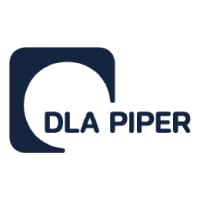
Senior legal counsel | Vend Marketplaces ASA


Simen C. Bergsmark
Senior legal counsel | Vend Marketplaces ASA
Team size: 5
What are the key projects that you have been involved in over the past 12 months?
The key projects I’ve been involved in over the past 12 months have all, in one way or another, related to the divestment of our News Media division, which was completed in June 2024. This divestment was a major milestone: it effectively marked the split of Schibsted into two companies, with Schibsted ASA (soon to become Vend Marketplaces) emerging as a publicly listed company focused on online marketplaces in the Nordics.
In addition to supporting the transaction itself, my work since the split has centered on further streamlining the new company structure. This has included supporting simplification initiatives—such as follow-on divestments—and managing the transition services agreement to ensure a smooth operational separation between the two groups.
Have you had any experiences during your career as a lawyer that stand out as particularly unique or interesting?
The divestment process for the News Media division stands out as a clear highlight. The bilateral structure of the deal with the Tinius Trust—also Schibsted ASA’s largest shareholder—added multiple layers of legal and commercial complexity. In parallel, the carve-out of a core part of the business posed several novel challenges, but ultimately landed well both legally and operationally.
Another standout experience was my involvement in Adevinta’s (then publicly listed and majority-owned by Schibsted) acquisition of eBay’s online classifieds business. This included Schibsted’s acquisition of eBay’s Danish classifieds business (now Schibsted Denmark). Subsequently, Adevinta was taken private by a consortium of private equity investors in 2025. It was a great experience navigating both the regulatory landscape and the dynamics of large-scale international M&A.
What do you think are the most important attributes for a modern in-house counsel to possess?
Legal competence is a given, but what truly sets an in-house counsel apart is their ability to understand and support the business. We need to see ourselves not only as legal advisors, but as integrated business partners. Building trust across teams, speaking the language of the business, and helping balance opportunity with risk are essential skills. The best outcomes happen when legal is involved early — as a proactive enabler, not just a safeguard.
Based on your experiences in the past year, are there any trends in the legal or business world that you are keeping an eye on, of which you think other in-house lawyers should be mindful?
Like many, we are closely watching the rise of AI. It’s already changing how we approach routine legal tasks, and it will likely drive greater standardisation in areas like contract drafting over time. That said, in-house lawyers bring deep contextual knowledge—and our challenge is to ensure AI tools reflect our companies’ specific needs, rather than flatten them.
We’re also seeing a steady increase in regulatory complexity. This calls for legal teams to work more strategically and cross-functionally, helping the business stay ahead of change rather than react to it.